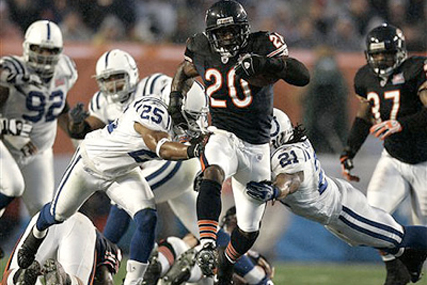
Despite most TV audiences fragmenting around the world, televised coverage of ‘premier' live sporting events were found to be bucking the trend by Initiative's specialist consultancy, Futures Sport + Entertainment.
In Europe, two sporting events that have seen significantly healthy growth in audience figures are the UEFA Champions League Final and the Wimbledon Lawn Tennis Championships Men's Singles Final.
The 2009 UEFA Champions League Final in which Spain's Barcelona beat England's Manchester United 2-0, achieved an average live global audience of 109 million people and a total audience of 206 million.
This represents average audience growth of 4% compared with 2008, and 19% on 2007.
The Wimbledon Men's Singles Final saw growth of 14% in its average live global audience between 2008 and 2009, taking it to 29 million people. Its total audience was 89 million people.
Kevin Alavy, director of Futures Sport + Entertainment at Initiative, said that major sporting events are cutting across more geographical and cultural boundaries than before and their appeal is getting ever broader.
He added: "As emerging markets - particularly in Asia - become more affluent, so their populations have more leisure time and they are choosing to watch sporting events on television."
The findings of Initiative's ViewerTrack also point to an impact on the growth of video-on-demand services.
Whereas TV audiences around the world are increasingly choosing to time-shift their viewing of entertainment and factual programming, they are still, overwhelmingly, opting to watch major sporting events as live broadcasts.
This has significant implications for advertisers looking to reach large, global audiences at a single point in time.
The big budget advertisers set to appear during Sunday's coverage on broadcaster CBS include Anheuser-Busch InBev, Audi, Chrysler's Dodge, Coca-Cola, Dockers, Doritos, Honda, Hyundai, Intel, Mars' Snickers, Unilever's Dove Men and Volkswagen.
"The growth of these major sporting events is good news for advertisers and sponsors," said Alavy.
"Rights holders are becoming more savvy about what they need to do to drive audiences, and the economic conditions are becoming ever more favourable for major sporting events."




_1.jpg)
.jpg)
